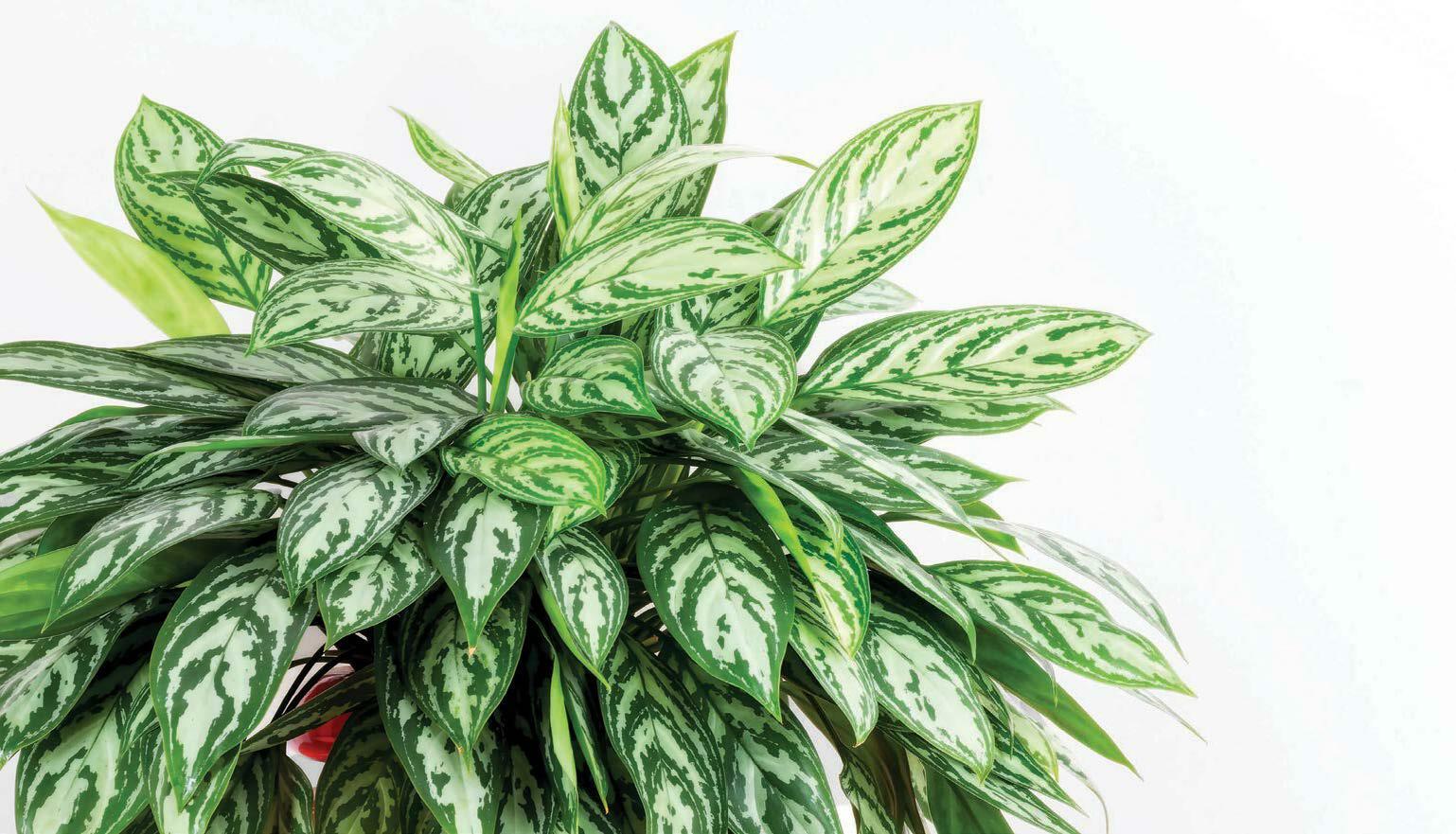
TODAY'S HOUSEPLANT
selection is almost as impressive as the many benefits of having them in your home.
Some options are better than others, though, so consider skipping the problematic plants and growing the more prized picks instead.
▲ GROW THIS: BIRD'S NEST FERN
Bird's nest fern is more adaptable than other ferns. "Its thick fronds hold up better to dry air and missed waterings-and it has a fun architectural form," says Justin Hancock, horticulturist at Costa Farms, one of the largest horticultural growers in the world. With thick, glossy, leatherlike fronds, bird's nest fern is drought tolerant and can go one to two weeks without water. It can also put up with low light conditions, although it prefers bright, indirect lighting. This fern is a slow grower, but over time it can reach more than 2 feet across.
NOT THAT: BOSTON FERN
Boston fern is not necessarily hard to grow, but it is hard to keep in good shape. The plant is sensitive to lighting, so it's not uncommon to see some of Boston fern's fronds shrivel up and the root ball dry out if watering is forgotten. Once the spent fronds are removed, the plant's handsome shape suffers. Before you know it, you've got a sad sack plant to hide in the corner whenever company is expected.
GROW THIS: ANTHURIUM
"If you want a steady show of flowers indoors, you can't beat anthurium," Justin says.
"Newer anthurium varieties have flowers that can last a month or more in good growing conditions and appear on and off throughout the year," he says. The blooms come in a wide range of colors including red, pink, purple, white and orange.
Anthurium won't put up a fuss if you miss a watering and it grows fine in average indoor temperatures and humidity levels. It prefers medium to bright light and grows 2 to 3 feet. tall and 1 foot wide.
NOT THAT: MINIATURE ROSE
Diese Geschichte stammt aus der December 2024/January 2025-Ausgabe von Birds & Blooms.
Starten Sie Ihre 7-tägige kostenlose Testversion von Magzter GOLD, um auf Tausende kuratierte Premium-Storys sowie über 8.000 Zeitschriften und Zeitungen zuzugreifen.
Bereits Abonnent ? Anmelden
Diese Geschichte stammt aus der December 2024/January 2025-Ausgabe von Birds & Blooms.
Starten Sie Ihre 7-tägige kostenlose Testversion von Magzter GOLD, um auf Tausende kuratierte Premium-Storys sowie über 8.000 Zeitschriften und Zeitungen zuzugreifen.
Bereits Abonnent? Anmelden
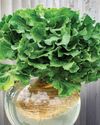
Basics of Hydroponics
Use these top tips and plant picks to have a successful soil-free garden
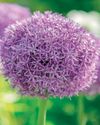
Rooted in Resilience
These hardy perennials will thrive in most zones
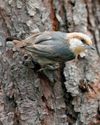
Social and Supportive
Brown-headed nuthatches take a helpful approach to raising their young
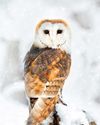
All About Owl Pellets
And why you should give a hoot about them
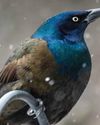
Ask the Experts
Advice from our pros about houseplants, bird feeding and more
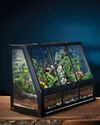
BRING THE OUTDOORS IN
Making a terrarium is about as close as you can get to a Zen DIY project. Once you have gathered the proper materials and squared away your plant selections, it's as simple as layering it all together and watching your mini ecosystem thrive. Here, I'll walk you through my foolproof process and cover all the required elements for good filtration, healthy soil, strong root growth and resistance against fungus and disease.

GROW THIS. NOT THAT
Six easy-to-grow houseplants—and six that may not be the right choice for you
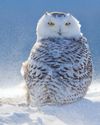
Winter MAGIC
Forecasts may be frigid, but grab your binoculars because birding opportunities are still incredible
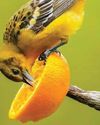
Sense or Nonsense? - Why some birds can taste and smell - but others can't
Does a porcelain berry taste like a blueberry to a gray catbird? Does a block of lard smell like frying bacon to a northern flicker? The short answer is no. While some avian species do have a well-adapted sense of taste or smell, they can't distinguish between flavors and odors the way humans can. They're not picking up every ingredient in the suet you put out, says José Ramírez-Garofalo, an ornithology researcher at Rutgers University in New Jersey and the director of Freshkills Biological Station in Staten Island, New York.
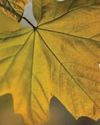
Maple Mania - Amazing facts about this fall foliage mainstay
Amazing facts about this fall foliage mainstay